第87章
As for hair, men differ in this themselves at different ages, and also from all other kinds of animals that have hair.These are almost all which are internally viviparous, for even when the covering of such animals is spiny it must be considered as a kind of hair, as in the land hedgehog and any other such animal among the vivipara.
Hairs differ in respect of hardness and softness, length and shortness, straightness and curliness, quantity and scantiness, and in addition to these qualities, in their colours, whiteness and blackness and the intermediate shades.They differ also in some of these respects according to age, as they are young or growing old.This is especially plain in man; the hair gets coarser as time goes on, and some go bald on the front of the head; children indeed do not go bald, nor do women, but men do so by the time their age is advancing.
Human beings also go grey on the head as they grow old, but this is not visible in practically any other animal, though more so in the horse than others.Men go bald on the front of the head, but turn grey first on the temples; no one goes bald first on these or on the back of the head.Some such affections occur in a corresponding manner also in all animals which have not hair but something analogous to it, as the feathers of birds and scales in the class of fish.
For what purpose Nature has made hair in general for animals has been previously stated in the work dealing with the causes of the parts of animals; it is the business of the present inquiry to show under what circumstances and for what necessary causes each particular kind of hair occurs.The principal cause then of thickness and thinness is the skin, for this is thick in some animals and thin in others, rare in some and dense in others.The different quality of the included moisture is also a helping cause, for in some animals this is greasy and in others watery.For generally speaking the substratum of the skin is of an earthy nature; being on the surface of the body it becomes solid and earthy as the moisture evaporates.Now the hairs or their analogue are not formed out of the flesh but out of the skin moisture evaporating and exhaling in them, and therefore thick hairs arise from a thick skin and thin from thin.If then the skin is rarer and thicker, the hairs are thick because of the quantity of earthy matter and the size of the pores, but if it is denser they are thin because of the narrowness of the pores.Further, if the moisture be watery it dries up quickly and the hairs do not gain in size, but if it be greasy the opposite happens, for the greasy is not easily dried up.Therefore the thicker-skinned animals are as a general rule thicker-haired for the causes mentioned; however, the thickest-skinned are not more so than other thick-skinned ones, as is shown by the class of swine compared to that of oxen and to the elephant and many others.And for the same reason also the hairs of the head in man are thickest, for this part of his skin is thickest and lies over most moisture and besides is very porous.
The cause of the hairs being long or short depends on the evaporating moisture not being easily dried.Of this there are two causes, quantity and quality; if the liquid is much it does not dry up easily nor if it is greasy.And for this reason the hairs of the head are longest in man, for the brain, being fluid and cold, supplies great abundance of moisture.
The hairs become straight or curly on account of the vapour arising in them.If it be smoke-like, it is hot and dry and so makes the hair curly, for it is twisted as being carried with a double motion, the earthy part tending downwards and the hot upwards.Thus, being easily bent, it is twisted owing to its weakness, and this is what is meant by curliness in hair.It is possible then that this is the cause, but it is also possible that, owing to its having but little moisture and much earthy matter in it, it is dried by the surrounding air and so coiled up together.For what is straight becomes bent, if the moisture in it is evaporated, and runs together as a hair does when burning upon the fire; curliness will then be a contraction owing to deficiency of moisture caused by the heat of the environment.A sign of this is the fact that curly hair is harder than straight, for the dry is hard.And animals with much moisture are straight-haired; for in these hairs the moisture advances as a stream, not in drops.For this reason the Scythians on the Black Sea and the Thracians are straight-haired, for both they themselves and the environing air are moist, whereas the Aethiopians and men in hot countries are curly-haired, for their brains and the surrounding air are dry.
Some, however, of the thick-skinned animals are fine-haired for the cause previously stated, for the finer the pores are the finer must the hairs be.Hence the class of sheep have such hairs (for wool is only a multitude of hairs).
There are some animals whose hair is soft and yet less fine, as is the case with the class of hares compared with that of sheep; in such animals the hair is on the surface of the skin, not deeply rooted in it, and so is not long but in much the same state as the scrapings from linen, for these also are not long but are soft and do not admit of weaving.